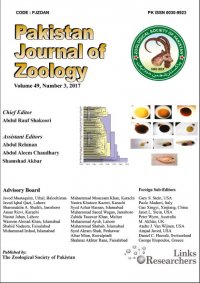Correlation Analysis of Fatigue with Sleep Disturbance, Depression and Anxiety in Elderly Patients with Myocardial Infarction
Correlation Analysis of Fatigue with Sleep Disturbance, Depression and Anxiety in Elderly Patients with Myocardial Infarction
Jin Jiao1, Jin Song1, Yuanyuan Cui1, Yilin Wang2, Yanling Li1, Jing Li1, Yan Su1, Xiaojing Du3, Yan Wang3, Guiping Sun3 and Minxiang Wei4*
ABSTRACT
The main objective of this study was to investigate the status of sleep disturbance, fatigue, anxiety and depression in patients with myocardial infarction (MI) and analyse the relationship between fatigue and sleep disturbance, anxiety and depression. A cross-sectional research method was used to recruit 190 patients who were at least one-week post-MI as the research participants. The Pittsburgh Sleep Quality Index, the Chinese version of the Multidimensional Fatigue Scale and the Hospital Anxiety and Depression Scale were used to analyse the relationship between fatigue and sleep disorders, anxiety and depression, assess the depression status and explore the relationship between myocardial infarction. In this study, 55.3% of patients had sleep disorders, 25.3% had anxiety tendencies with a gender difference, 20.0% had depression tendencies, and 33.2% had fatigue with no gender difference. Anxiety, depression and sleep disturbance were all related to fatigue (P<0.05). The results of the multiple regression analysis showed that anxiety, depression and sleep disturbance jointly explained 44.8% of the variation in fatigue. To conclude sleep disturbance, depression and anxiety could be influencing factors of fatigue in patients with MI, which affect the rehabilitation process of MI, particularly in elderly patients. Medical staff should consider educating the impact of anxiety, depression, fatigue and sleep disorders on MI and how to determine the needs of patients regarding mental health, symptoms and self-care strategies.
To share on other social networks, click on any share button. What are these?










